Invited Panels
1. Digital Resources for Cultural Heritage
A major contribution of linguistic work to the common good has been the documentation of language resources and the increased accessibility that linguistic projects bring to the cultural heritage of a diverse set of languages, including low resource languages and other less studied languages. In this panel we focus on a range of projects preserving and disseminating cultural heritage using digital resources that support work in linguistics as well as linguistic, religious and ethnic communities.
Fr. Columba Stewart will present work done at the Hill Museum and Manuscript Library, preserving unique and priceless manuscripts which document ancient texts from Europe, Africa, the Middle East and South Asia. Dr. Azeb Amha will present on the digital preservation of whistle-based naming and communication systems used by the Oyda people of southwest Ethiopia. Together, these talks and the panel discussion will showcase some of the work done to protect and preserve linguistic resources for the future.
Meet the Panelists
Fr. Columba Stewart, Hill Museum and Manscript Library:
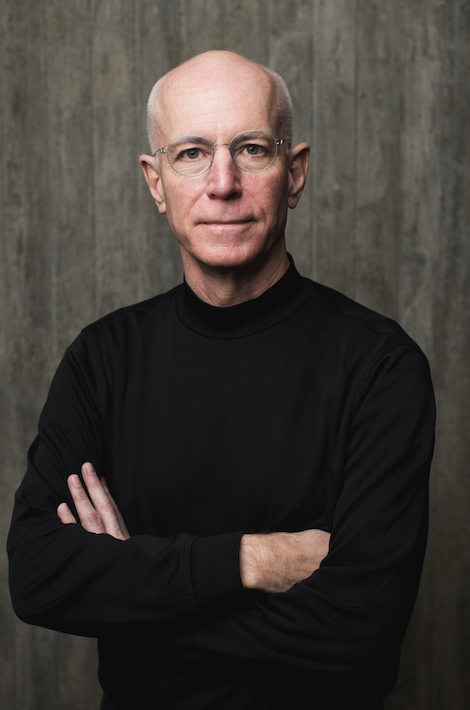
Columba Stewart OSB is professor of theology at Saint John’s University and has been executive director of HMML since 2003. He is a scholar of early Christian asceticism and monasticism with a particular interest in Syriac and Greek monastic writings and their transmission to the Latin west.
“Making Whole Again: reuniting dispersed cultural heritage through large-scale digitization of manuscripts in the Middle East, Africa, and South Asia.”
This presentation will be an overview of the work of the Hill Museum & Manuscript Library (HMML) at Saint John’s University in Collegeville, MN. For 55 years HMML has been photographing manuscripts in Europe, Africa, the Middle East, and South Asia, with a particular focus on locations where manuscript heritage is endangered by war, persecution of minorities, civil unrest, or lack of resources. The digital images (and scans of legacy microfilm) are shared online through the vHMML Reading Room, which already contains data about manuscript in 45 languages. Most of these manuscripts have not been previously accessible to the scholarly world. vHMML Reading Room was designed to foster comparative study across manuscript traditions and sharing of data with other DH projects.
Azeb Amha, Univeristy of Leiden:
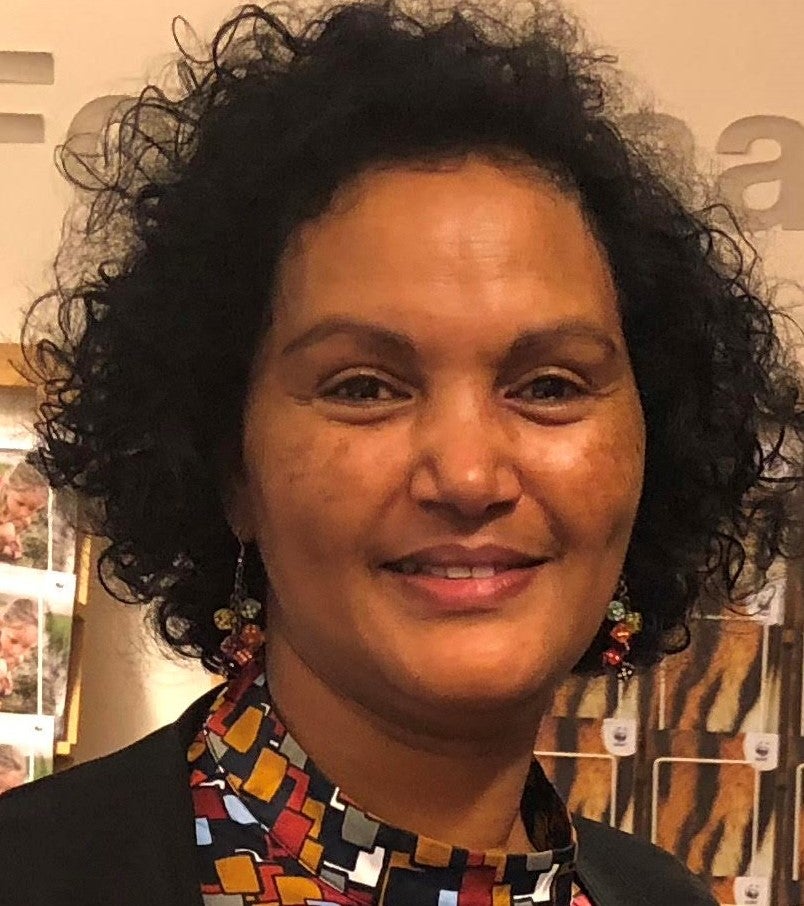
Azeb Amha is a researcher at the African Studies Centre Leiden, Leiden University with expertise in language documentation and description. Her research interest lies in communication, language use and morpho-syntax in Omotic languages of Afroasiatic. Some of her key publications include papers in The Proceedings of the 5th International Conference on Cushitic and Omotic Languages, in Commands: A Cross-Linguistic Typology (ed. A. Aikhenvald), and in the seminal volume The Afroasiatic Languages (ed. Z. Frajzyngier and E. Shay).
“Digital records on moyzé súnts (whistled names) in the Oyda language of Southwest Ethiopia and its relation to music”
The Oyda language, a member of the Ometo branch of Omotic, is spoken in South-West Ethiopia. The 2007 national census reports that there are 45.000 ‘ethnic Oyda’ but given Oyda speakers’ high-level of bilingualism in the Gofa language – and in some places even shift to Gofa -, the number of mother-tongue speakers of Oyda might be much less than the above figure suggests. The Oyda area is dominated by mountains and valleys, partly shaped by the Great Rift Valley system that vertically splits Ethiopia into two. Most likely influenced by this natural environment, the Oyda people use a naming and communication system (moyzé súnts) that involves whistling, using the hands held against the mouth to modify the airstream. Most people in Oyda (irrespective of gender and age) have a moyzé súnts which is used side by side their s’eéggo sunts (personal/proper name, lit. ‘calling name’). Moyzé is like a name in that an individual’s moyzé name is known and used by people close to him/her and it is introduced to new acquaintances. In the presentation, I discuss the characteristics of moyzé sunts, the way it is learnt and remembered, the cultural and day-to-day contexts of its use and demonstrate how this melodic name relates to part of the musical tradition of the Oyda people. Other than naming individuals, moyzé is also used to express a few commands and interactive expressions: “yes/okay”, “come here” and “hurry!” and a whistle form referring to something like “danger”. Nevertheless, compared to better-known whistled languages such as Silbo in the Canary Islands, the Spanish-French dialect of Aas in the French Pyrenees, Greek spoken in Antia (cf. Meyer 2008)[1], moyzé sunts rarely reproduce spoken speech. With few exceptions, the whistled name of an individual has no phonological correspondence to his/her P.name. I will discuss extensive digital resources compiled a.o. on moyzé names with the support of the DoBeS programme and the importance of these digital resources on the representation and preservation of the fast-changing culture and language of the Oyda people.
Mary S. Linn, Smithsonian Center for Folklife and Cultural Heritage:
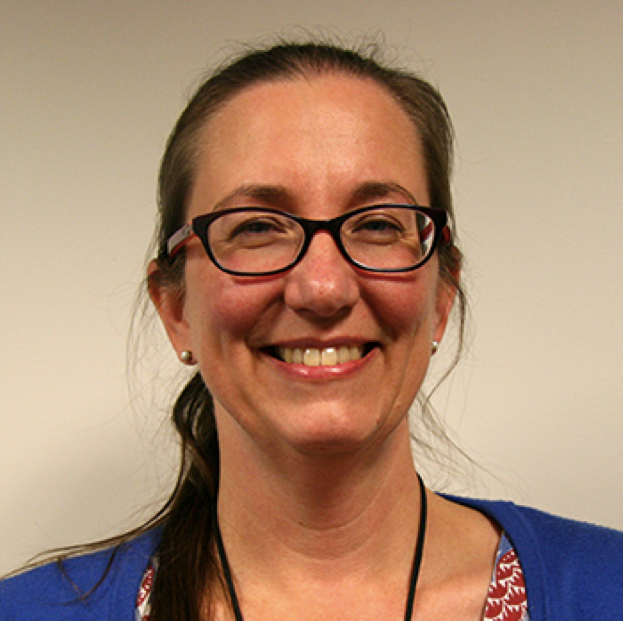
Mary S. Linn is Curator of Cultural and Linguistic Revitalization at the Smithsonian Center for Folklife and Cultural Heritage (CFCH). Mary specializes in work with indigenous communities in North America to sustain and revitalize endangered languages. Mary joined the Smithsonian in 2014. She works in revitalization strategies for indigenous community members including language documentation, language policy, survey methods, and culturally-based language curriculum.
“The Circle of Breath of Life: Indigenous Informed and Informing Digital Archives”
Breath of Life workshops originated in California and have been replicated around the world, including the National Breath of Life in Washington, DC. The Breath of Life (BOL) workshops are an approach to renewing silent languages by training community members to access and use archival linguistic and cultural materials. The literature rightly focuses on how the approach has positively affected renewal of languages and community (Hinton 2001, Baldwin and Perez-Baez 2018) and how it trains especially young linguists in collaborative methodologies (Fitzgerald and Linn 2013). This panel contribution will show how BOL became a major influencer in changing the nature of linguistic archives. It will follow the thread of BOL, along with other efforts, initiatives, and methodological shifts in linguistics and archiving, such as the Digital Endangered Languages and Musics Archive Network (DELAMAN), NSF/NEH Documenting Endangered Languages (DEL), and Association for Tribal Archives, Libraries, and Museums (ALTALM), have changed the field of linguistics not just in what we collect and how we collect but also in metadata, discoverability, accessibility, and shared stewardship. This in turn affects the quality and use of linguistic data that vastly improves our field and language vitality in source communities.
2. Diversifying Linguistics
Meet the Panelists
Kirby Conrod, University of Washington
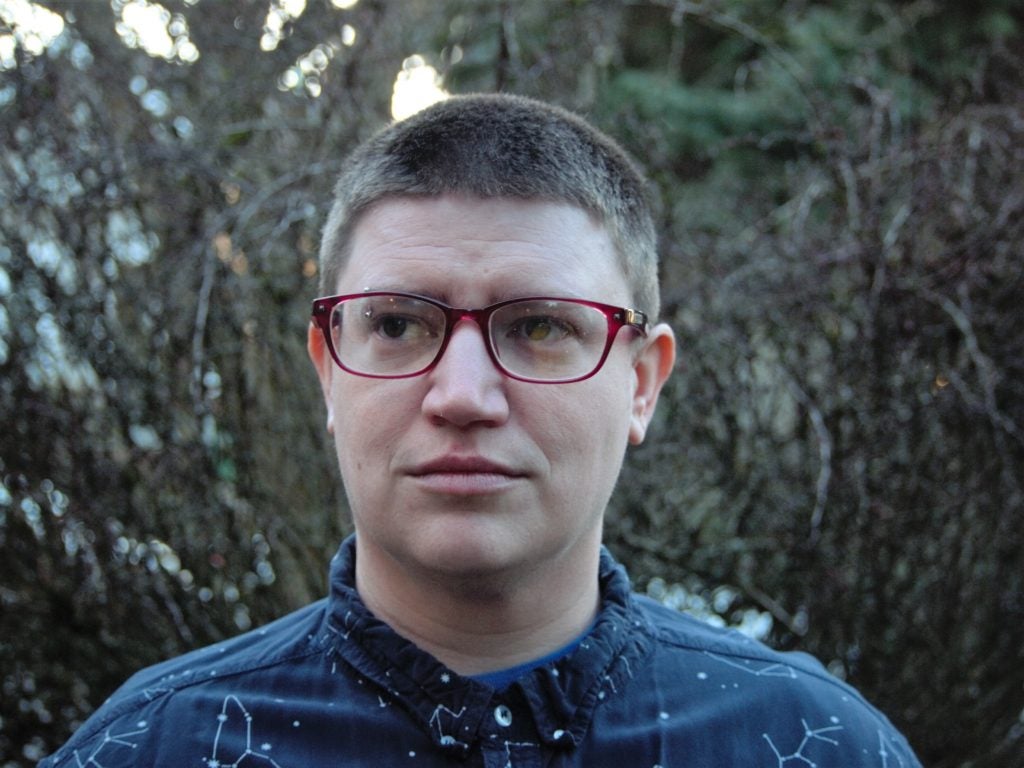
“Language, Gender, and Harm”
Kirby Conrod is a doctoral candidate in the Department of Linguistics at the University of Washington. Their dissertation explores third person pronouns in English from a syntactic and sociolinguistic perspective; using evidence from complex pronoun constructions and from an ongoing language change around singular use of they, they propose a new underlying syntactic structure of pronouns. They live in Seattle with their spouse, roommates, and an impolite cat.
Stephany Dunstan, North Carolina State University
Julie Hochgesang, Gallaudet University
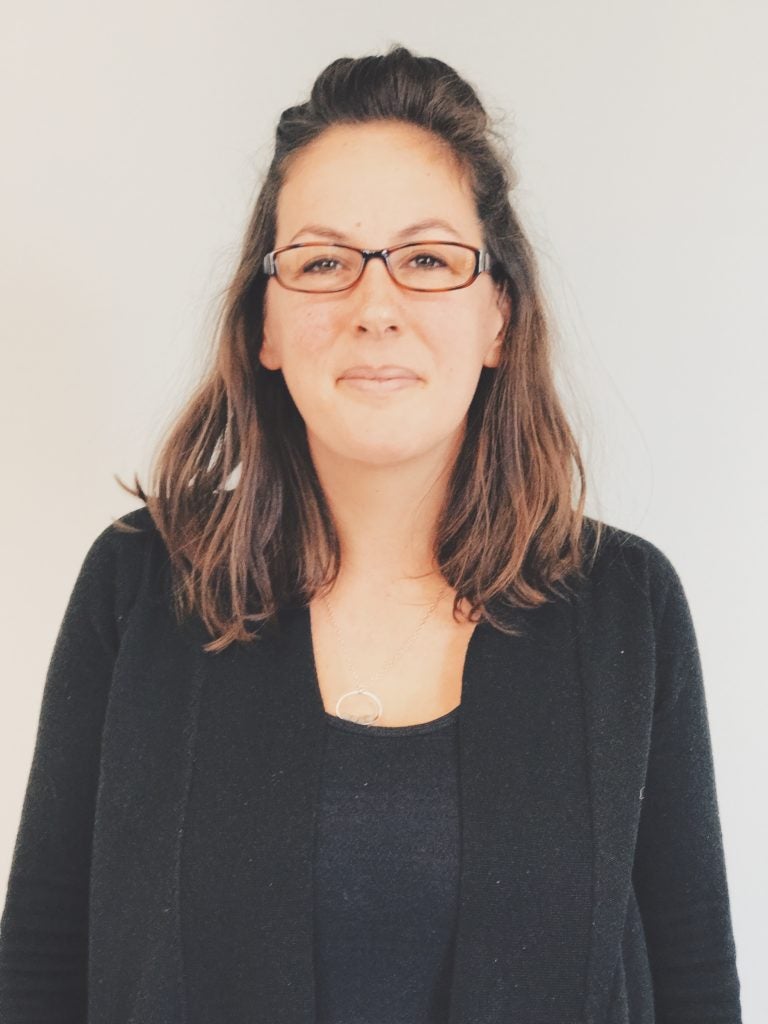
Julie A. Hochgesang is an associate professor of Linguistics at Gallaudet University. Her research specializations: language documentation and corpus linguistics of signed languages, including the textual representation of ASL (e.g., The ASL Signbank); phonetics and phonology of signed languages; making signed language research accessible to the communities. She self-identifies as a Deaf American woman and uses signed ASL and written English as her primary languages. Twitter @jahochcam @lingdeptgu
Nicole Holliday, Pomona College
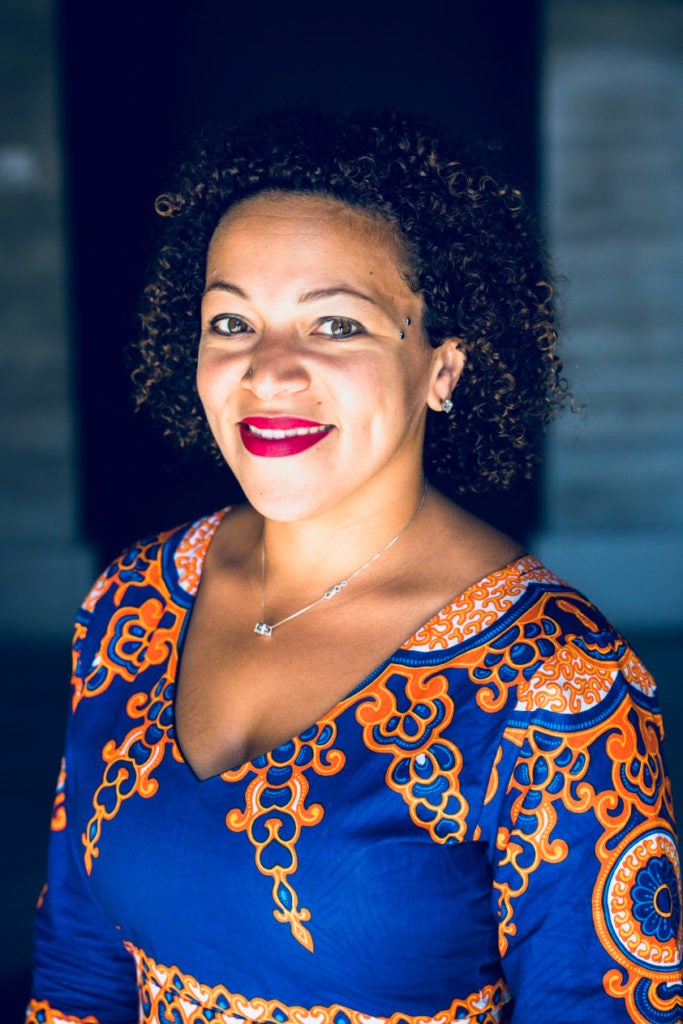
“Sociolinguistic Theory and Praxis for Studying Communities and Individuals with Multiple, Complex Racial Identities”
Nicole Holliday is an Assistant Professor of Linguistics in the Department of Linguistics and Cognitive Science in Claremont, California. She received her Ph.D. in 2016 from New York University. Her work focuses on sociophonetic variation, especially intonational variation, among African Americans as well as speakers with multiple, complex racial identities, and she focuses on how speakers use variation to construction and perform multifaceted racial identities. She’s also interested in issues of linguistic profiling and raciolinguistic inequality, and her teaching focuses on bringing students and community members into scholarly discussions about sociolinguistics and race. Professor Holliday’s work has appeared in such venues as American Speech, Language in Society, and WIRES Cognitive Science and she has received grants from the National Science Foundation and the Mellon Foundation.
Gloria Park, Indiana University of Pennsylvania
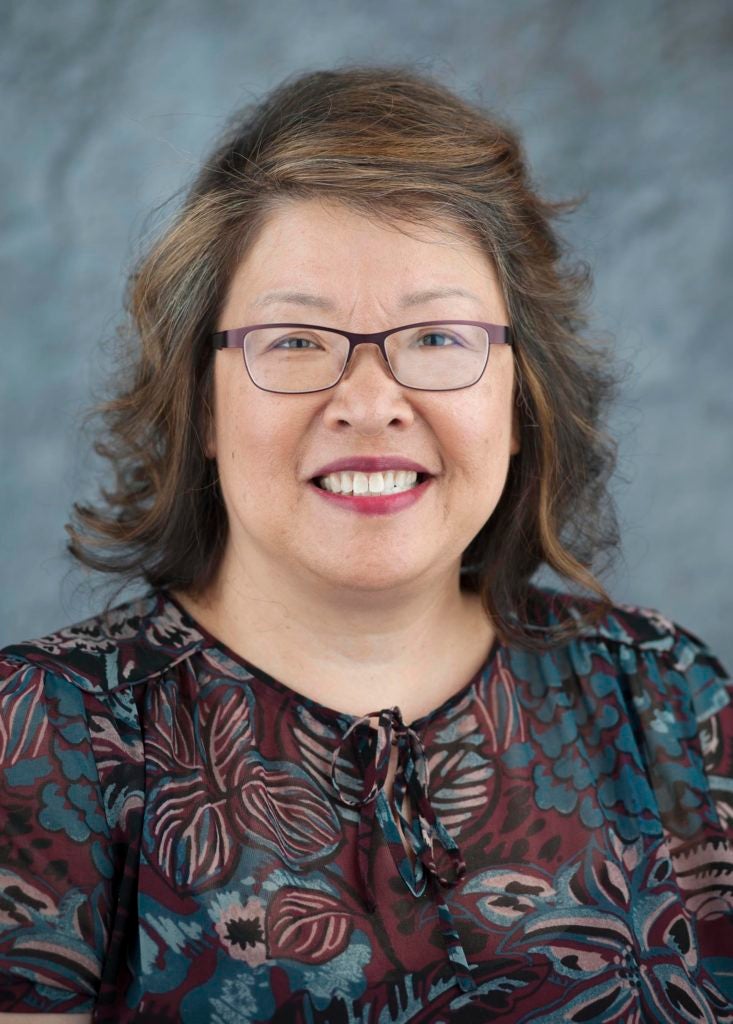
“Where Privilege and Marginalization Meet: Narratives of East Asian Women Teacher Candidates”
Gloria Park, Ph.D. is a Professor and Director of the Graduate Studies in Composition & Applied Linguistics and an affiliate faculty in the Women and Gender Studies Program housed in Indiana University of Pennsylvania. Gloria’s teacher scholar interests focus on critical pedagogy, teachers’ (auto-ethnographic) narratives, World Englishes, and language teacher education. Gloria is the author of Narratives of East Asian Women Teachers of English: Where Privilege Meets Marginalization (2017, Multilingual Matters). Her other publications appear in TESOL Quarterly, TESOL Journal, Journal of Language, Identity and Education, Race, Ethnicity and Education, ELT Journal, Journal of Pedagogic Development among others. In 2015, Gloria was appointed as a series associate editor for Teacher Education and Professional Development volume of TESOL-Wiley English Language Teaching Encyclopedia, which was released in 2018. In promoting curricular options for students in between undergraduate and graduate education, Gloria designed and proposed a new TESOL Graduate Certificate Program, which prepares domestic students interested in teaching English abroad.
Minnie Quartey, Georgetown University
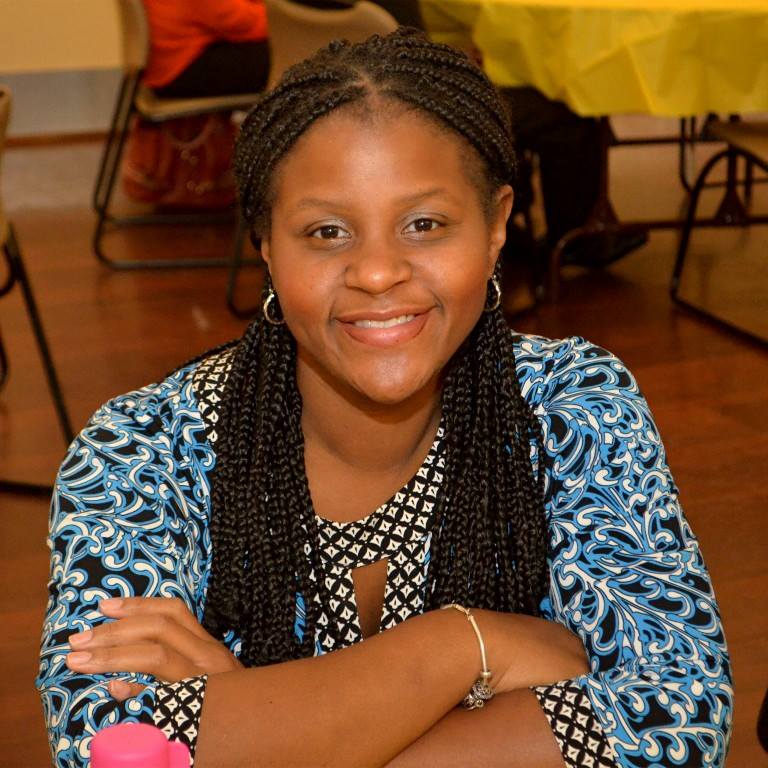
Minnie Quartey is a sociolinguistics doctoral candidate at Georgetown University, and her dissertation explores how speakers of African American Language construct multifaceted local identities through storytelling as well as analyzes vowel centralization in the Washington, DC area. She serves as project coordinator for the Language and Communication in Washington, DC project (LCDC), and her research has been featured on the front page of the Washington Post, and she has been a guest on NPR.
In addition to studying identity construction, Quartey also has an interest in linguistic diversity and awareness and its effects from the classroom to the boardroom. She has conducted workshops for private corporations, service organizations, and various student groups at Georgetown University.
Quartey graduated with her Bachelors and Masters degrees from Georgetown University, and she has lived and worked in the Washington, DC area for the last seven years.
